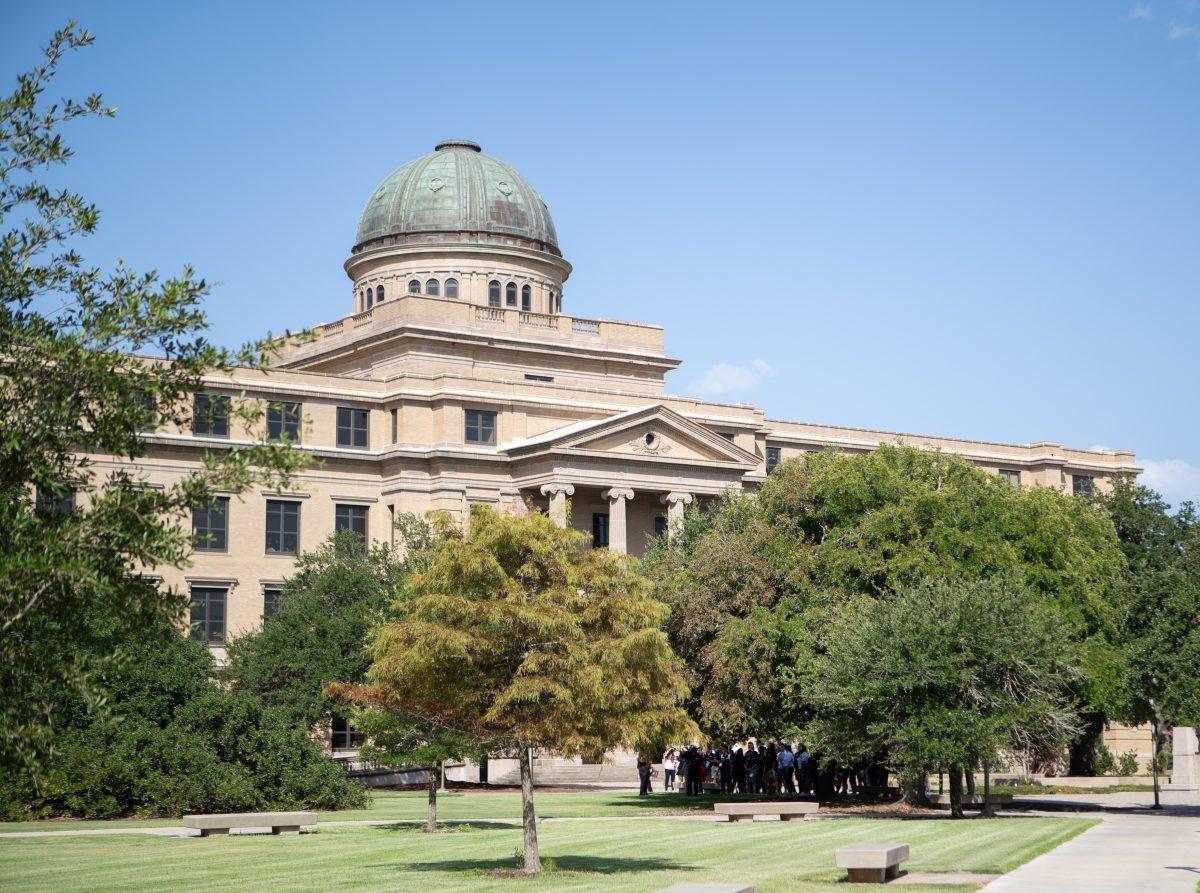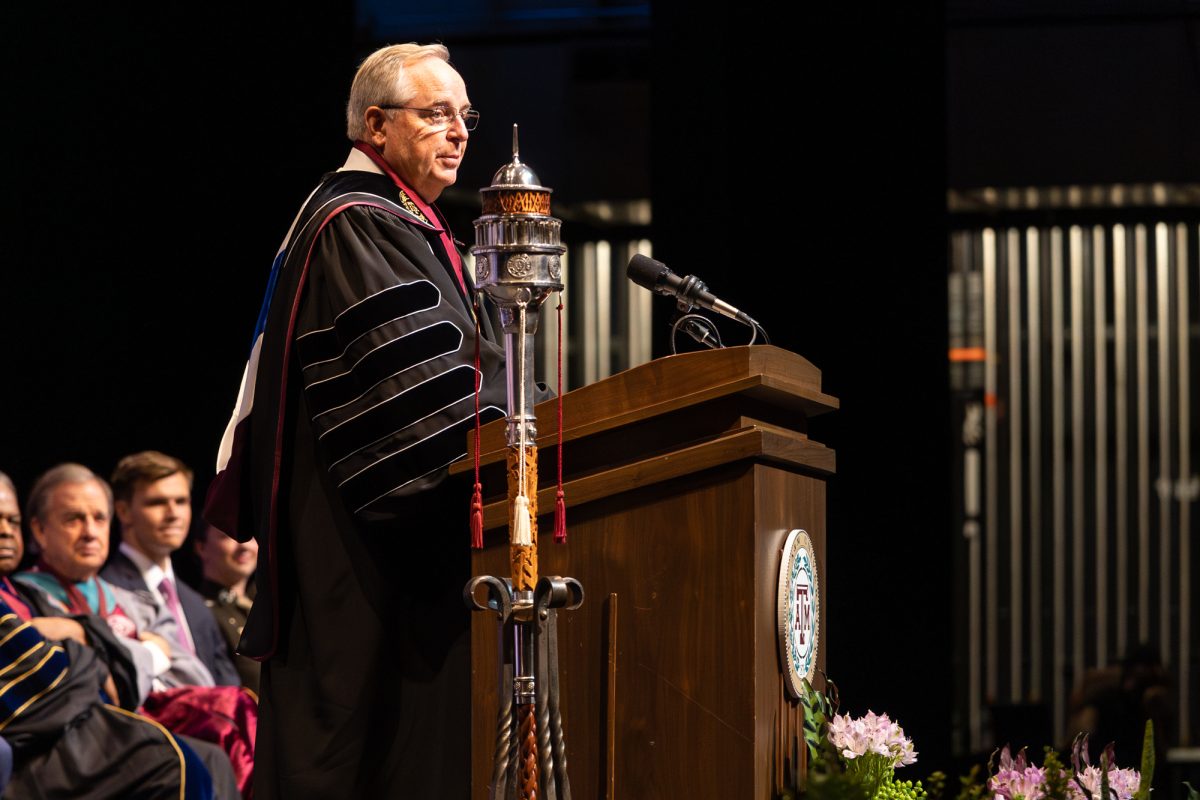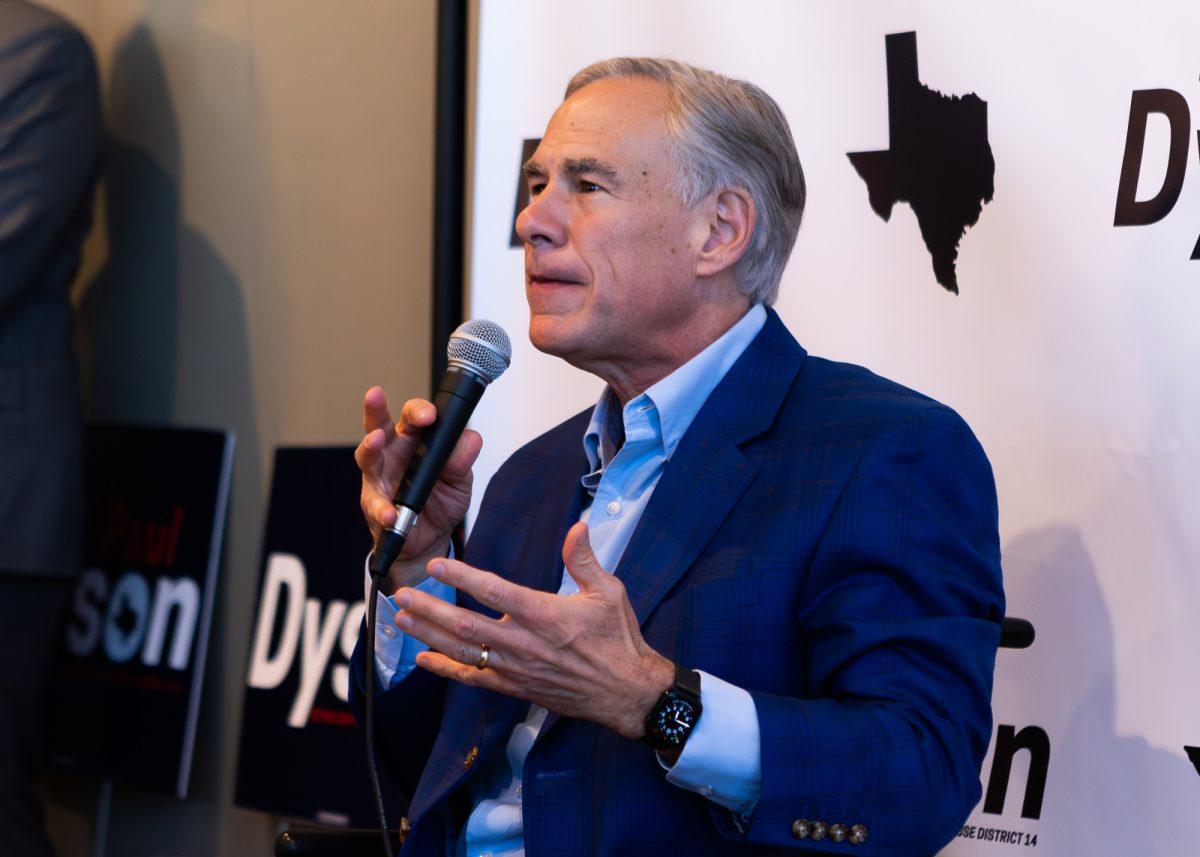On Monday, Aug.14, Interim President Mark A. Welsh III spoke to the Texas A&M Faculty Senate regarding recent controversies, academic freedom and the next steps for the university.
A&M was recently featured in national headlines regarding faculty practices and treatment. First for the botched attempt to hire Kathleen McElroy, Ph.D., to run its new journalism program. The news was closely followed by the revelation that clinical assistant professor Joy Alonzo was placed on administrative leave after allegedly criticizing Lt. Governor Dan Patrick, the resignation of former-President M. Katherine Banks and sex discrimination allegations at A&M Qatar.
Faculty Senate Speaker Tracy Hammond opened the meeting. Hammond said faculty must work alongside the administration despite mistrust and that additional policies, transparency and a renewed emphasis on core values are necessary to protect faculty.
“People have lost role models, mentors, deans and faith in the university,” Hammond said. “Even more are terrified for what is coming next. Our values were shaken to the core. For most of us, it feels like part of A&M died this month.”
Welsh said he began his tenure by speaking to students, staff and faculty.
“I’m trying to figure out — besides the obvious events that have been in the news — what has caused all the consternation, the confusion, the frustration,” Welsh said. “Most of it, people have expressed to me, comes from a feeling they don’t know what’s going on or they weren’t included in the conversation.”
Welsh said he is working to identify communication breakdowns and policies that frustrate faculty.
“The big stuff that everyone is frustrated about has to do with the MGT report and the plan that followed,” Welsh said.
The MGT report was authored by MGT Consulting and outlines recommendations for improving efficiency and effectiveness. Some of these recommendations were adopted or modified in Banks’ Path Forward initiative, which included combining the colleges of sciences, liberal arts and geosciences, establishing a department of journalism and several administrative reorganizations.
Welsh said he asked a task force to evaluate the status of the Path Forward.
“Let’s figure out which of these initiatives are on track, and we can just encourage it to continue,” Welsh said. “If some of those initiatives are not on track, we’ll take a deeper dive and figure out why not. Are they just the wrong idea? Are they scoped wrong? Are they scaled wrong? Do they need more resources? What can we adjust to make them be successful? And then the third set of initiatives may be things that are really struggling and then we have big choices to make.”
Welsh said this process would take about a month and that he encourages faculty to be involved in the conversation. Welsh also said he was concerned about facility funding and wants to ensure they have the proper resources.
Senator Jorge Alvarado asked why McElroy’s hire caused controversy with regents and administrators and said he was concerned it might happen again. Documents and text messages released by the Office of General Council showed Banks was heavily involved in McElroy’s hiring process. Welsh said he didn’t know and that the university president should not have been involved in a department-level hire.
“Somebody can call and offer an opinion on something, but that doesn’t mean you have to accept it,” Welsh said. “The hiring process is owned and operated by the university. I mean, period. We make that call, and we hire the faculty that will be best for the job we need them to do.”
Senator Rajesh Miranda, Ph.D, said he was concerned by Alonzo’s treatment and wanted to know it wouldn’t happen again. Welsh said he thought McElroy’s case was distinct from Alonzo’s.
“The decision to suspend [Alonzo] and put her on paid leave was made not as a punishment but as a quick decision because the person who made it did not know what was happening around this whole investigative action,” Welsh said.
Welsh said he asked another task force to look into additional policies to ensure similar
decisions could not be made by one person and would not be done quickly.
Speaker-elect Angie Hill Price said she was concerned by unclear guidance regarding Senate Bill 17, or SB 17, implementation. SB 17 was recently signed into law by Gov. Greg Abbott in June and bans diversity, equity and inclusion, or DEI, offices.
Welsh said he met with the Office of General Counsel and was “generally pleased” with their interpretation of SB 17.
“In general, if it is a student organization, then it’s fine to continue, we can support it,” Welsh said. “Faculty and staff advisors are OK for those organizations as long as we provide the same support to any other organization similar in nature. The only specific references to shutting this down were to things … activities that had DEI in the title.”
Senator Matthew Sachs said it was important to verify allegations published in Inside Higher Education. In the article, an anonymous member of Banks’ cabinet said leadership instructed MGT Consulting to present their own proposals as organic recommendations in the final report.
Welsh said he was not familiar with the article.
“My first concern right now would be, what do we do? Undo it all?” Welsh said. “There were opportunities for people to get engaged in this. We have everybody’s input still on file with the different initiatives.”
Senator Debjyoti Banerjee asked if Welsh intended to investigate past appointments and determine if anyone else inappropriately interfered with negotiations with McElroy. Welsh said he did not think doing so would be a “good use of resources” and that modifications to McElroy’s contract were only made by Banks and the former dean of the College of Arts and Sciences.
“If we’re looking for more people to blame, I’m just not that guy,” Welsh said.
The full meeting can be viewed on the faculty senate’s YouTube page.










